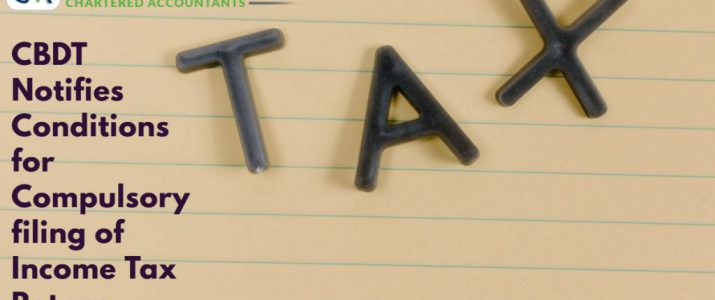Zero Tax on Salary of Rs. 10,00,000? Is it possible?
Yes, even if your salary is up to Rs. 10,50,000, you will not be required to pay the taxes after reading this article.
1. Standard Deduction
⦁ Assumption – Salary Considered – Rs. 10,50,000. If even if it is less, you can still save the taxes to zero and yes, you heard it right – Legally, without having the sleepless nights of getting notices from the Income Tax Department.
⦁ the government provides the Standard Deduction of Rs. 50,000. So your taxable salary is Rs. 10,50,000 – 50,000 = Rs. 10,00,000.
2. Deduction under Section 80C. Confused about what comes under 80C – Read Below –
⦁ PPF, EPF, LIC premium, Equity-linked saving scheme, principal amount payment towards home loan, stamp duty and registration charges for the purchase of property, Sukanya Samriddhi Yojana (SSY), National saving certificate (NSC), Senior citizen savings scheme (SCSS), ULIP, tax saving FD for 5 years, Infrastructure bonds, etc.
⦁ The maximum deduction which can be claimed here is Rs. 1,50,000. Hence, considering you invest Rs. 1,50,000, your taxable salary becomes – Rs. 10,00,000 – Rs. 1,50,000 = Rs. 8,50,000 (taxable salary).
3. Deduction under Section 80CCD (1b) – National Pension Scheme –
⦁ You can claim a deduction of Rs. 50,000 by investing under NPS. Yes, it has restrictions for the withdrawal, but this will help you in building a retirement corpus.
⦁ The taxable salary after investing here will become – Rs. 8,50,000 – Rs. 50,000 = Rs. 8,00,000.
4. Deduction Under Section 80D – Medical Insurance –
⦁ Indians, yes you heard it right we Indians have started giving importance to Insurance policies and yes now we don’t ask ” Wapas Kitna Milega Kuch Nahi Hua To” – With this change in mindset and living in a pollutive environment we require medical insurance. “Sone pe Suhaga” is it will even save your taxes.
- ⦁ For self, spouse & children – There is a cap of Rs. 25,000 or 50,000 (in case of senior citizen)
- ⦁ For Parents – There is a cap of Rs. 25,000 or 50,000 (in case of senior citizen)
- ⦁ Even body checkups are allowed and a deduction up to Rs. 5,000 can be claimed. But the upper limit is mentioned above.
- ⦁ If your parents are senior citizens, and they don’t have medical insurance and they aren’t filing their Income Tax Return and if you paid for their medical treatment, you can claim up to Rs. 50,000.
- ⦁ Hence, after section 80D, the taxable salary shall become – Rs. 8,00,000 – Rs. 25,000 = Rs. 7,75,000.
5. Interest on Housing Loan – Section 24b of Income Tax Act –
⦁ We Indians grow up hearing “Apna Ghar Apna Hi Hota Hai” and our minds start thinking about it as soon as we start family planning.
⦁ Interest on housing loans is allowed till Rs. 2,00,000 every financial year. Hence, your taxable salary becomes – Rs. 7,75,000 – Rs. 2,00,000 = Rs. 5,75,000.
6. Interest on Education Loan / Purchase of Electric Vehicle / Donation Under Section 80G —
⦁ Education has become very costly and middle-class parent cannot afford to pay from their pocket, hence education loan is taken by the number of students. The interest component of the loan is deductible under section 80E.
⦁ The world is shifting from Petrol/ Diesel to EVs and yes, you can even claim a deduction of up to Rs. 1,50,000 on interest paid for the purchase of EVs. The deduction is available u/s 80EEB. (Vehicle should be financed, notional interest cannot be claimed).
⦁ If none of the above is applicable, then donations are also allowed as deductions. Provided you are donating to charitable trust or NGOs which has got the certificate from Income Tax.
⦁ Now the overall objective is to reduce the taxable income from Rs. 5,75,000 to Rs. 5,00,000. Considering Rs. 75,000 deductions are claimed by using the above section. Then you need to pay zero taxes. Confused? Happy? How How? Let us see –
⦁ Now the Taxable salary is Rs. 5,00,000. The tax on income up to Rs. 2,50,000 is exempt from tax. Thus the tax payable would be Rs. 12,500 (5% slab from Rs. 2,50,000 to Rs. 5,00,000. Hence 5% of Rs. 2,50,000 is Rs. 12,500).
7. Rebate under section 87A –
⦁ If your income is Rs. 5,00,000 or lesser, you can claim a rebate under section 87A for a maximum of Rs. 12,500. Hurrah the tax payable is Rs. 12,500 (tax calculated above) – Rs. 12,500 (rebate u/s 87A) = 0 (Zero).
“Start Planning, you can thank us later “
⦁ Upcoming article – How to pay zero taxes on Rs. 20,00,000 salary. Stay tuned.
